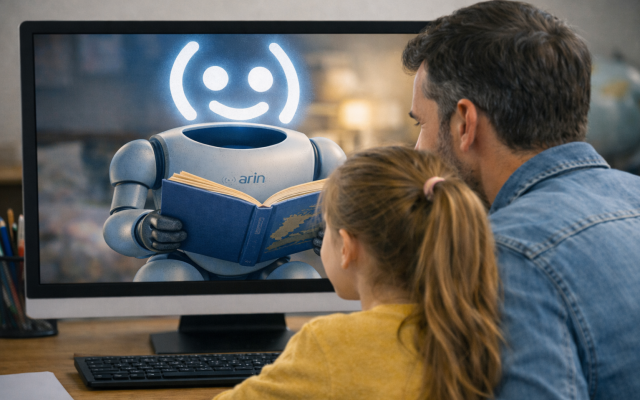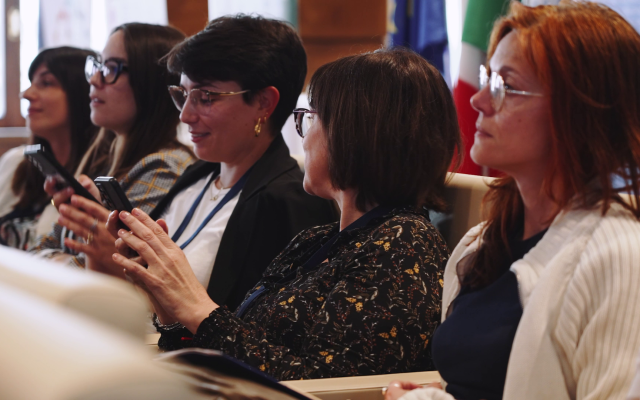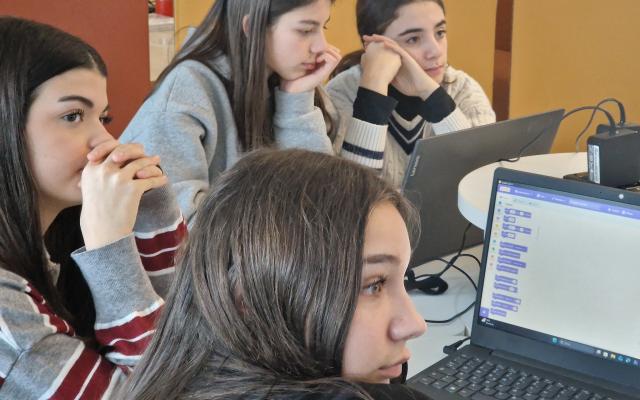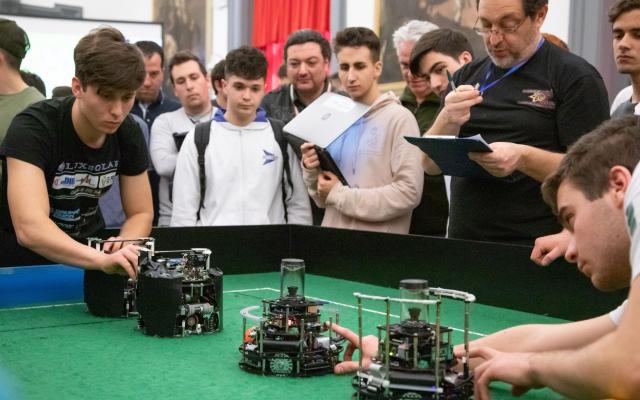Working groups on the Manifesto for collective action on AI and robotics
During RomeCup 2025, the event ‘Fast Forward AI: from vision to action’ brought together experts, academics, companies, policy makers and young talents to transform a shared vision of artificial intelligence (AI) and robotics into concrete solutions for the future. The meeting reinforces the mission of the Manifesto for Collective Action on AI and Robotics, a document that calls for the building of a strategic alliance to ensure that technological innovation does not amplify inequalities but becomes a driver of equitable and sustainable development.
Participants divided into thematic working groups explored crucial issues, ranging from solutions for inclusive education to the creation of opportunities for economic and social growth. Each group presented a strategic pitch and contributed to the creation of the AI Strategy Wall, a roadmap created in real time using artificial intelligence, which summarises the main proposals that emerged. The feedback from the working groups shed light on the development objectives and actions needed to turn the Manifesto into reality.
Feedback from the working groups
- AI and robotics at the service of health for all
Roberto Basso coordinates the working group with Federica Mazzotti, Marcello Pellicciari and Raffaele Barile
- Problem: healthcare workers are often the intermediaries between innovation and the end user, i.e. the citizen. If they are not adequately trained, technological innovations do not reach those who need them.
- Action: create a continuous training programme for healthcare personnel, including the possibility of obtaining compulsory credits for updating skills. This will ensure that healthcare professionals are ready to embrace and apply technological innovation.
- Involvement: Ministry of Health, universities, businesses (from the pharmaceutical to the diagnostics sector), patient associations.
- Objective: to create a balance between trust, skills and practices in order to improve healthcare.
- Next steps: collaborate with FMD to define the training programme.
- Link to the Manifesto: action no. 7 (Vocational training for skilled jobs in the labour market), inclusiveness and equity.
- AI and robotics for the common good and the empowerment of people
Karen Nahum coordinates the working group with Alessandro Gasparetto, Daniele Carnevale and Silvia Colombo
- Action: simplify access to training and promote transparency in technological processes, with the aim of teaching people to learn continuously, leaving no one behind.
- Involvement: institutions, schools of all levels, media, third sector, companies.
- Objective: to reduce the educational gap by promoting the active participation of young people in training and the world of work.
- Next steps: in collaboration with FMD, to guide school education and combat the educational gap.
- Point of contact with the Manifesto: action no. 3 (Multidisciplinary education, with a focus on gender equality), no. 5 (School and career guidance to combat educational poverty).
3. AI and robotics for economic and inclusive growth
Andrea Spaccapietra coordinates the round table with Rosanna Ventrella, Emanuela Percoco and Giuseppe Di Battista
- Problem: the difficulty of people with disabilities in finding work, particularly in protected categories, who often depend on word of mouth or difficult search methods.
- Solution: develop an app with integrated AI to match job supply and demand, without bias or prejudice, ensuring equal access to opportunities.
- Involvement: public bodies, third sector, companies.
- Objective: to increase inclusiveness in the world of work and promote corporate social responsibility.
- Next steps: collaborate with FMD to leverage local knowledge and develop the app.
- Link to the Manifesto: action no. 8 (Continuous training for workers in vulnerable conditions), no. 10 (Clear and transparent communication on the benefits and risks of AI).
- AI and robotics for Made in Italy
Marco Valentini coordinates the round table with Marco Valentini, Antonio Romeo, Marcello Zinno and Alessandro Paoletti
- Plan: Industry 6.0, with a focus on Made in Italy and the inclusion of SMEs in the digitalisation process.
- Objective: to support the growth of Italian SMEs by ensuring adequate training and communication for the adoption of advanced technologies.
- Involvement: territories, chambers of commerce, SMEs, third sector.
- Value generated: social inclusion, reduction of discrimination, creation of a favourable environment for work.
- Next steps: collaborate with FMD to implement upskilling and reskilling programmes for SMEs.
- Link to the Manifesto: Action No. 2 (Sharing between organisations and regions at national and international level), No. 6 (Research for advanced solutions at the service of humanity).
The working groups have produced concrete proposals in line with the guiding principles of the Manifesto for collective action on AI and robotics, creating a shared commitment to a fair, inclusive and sustainable technological future. Collaboration between institutions, businesses and universities remains essential to address the challenges of innovation, ensuring that the benefits of AI and robotics are shared by all, leaving no one behind.
The Manifesto is now an evolving platform, fuelled by the contributions of all stakeholders, to build the future of technology and work together.




